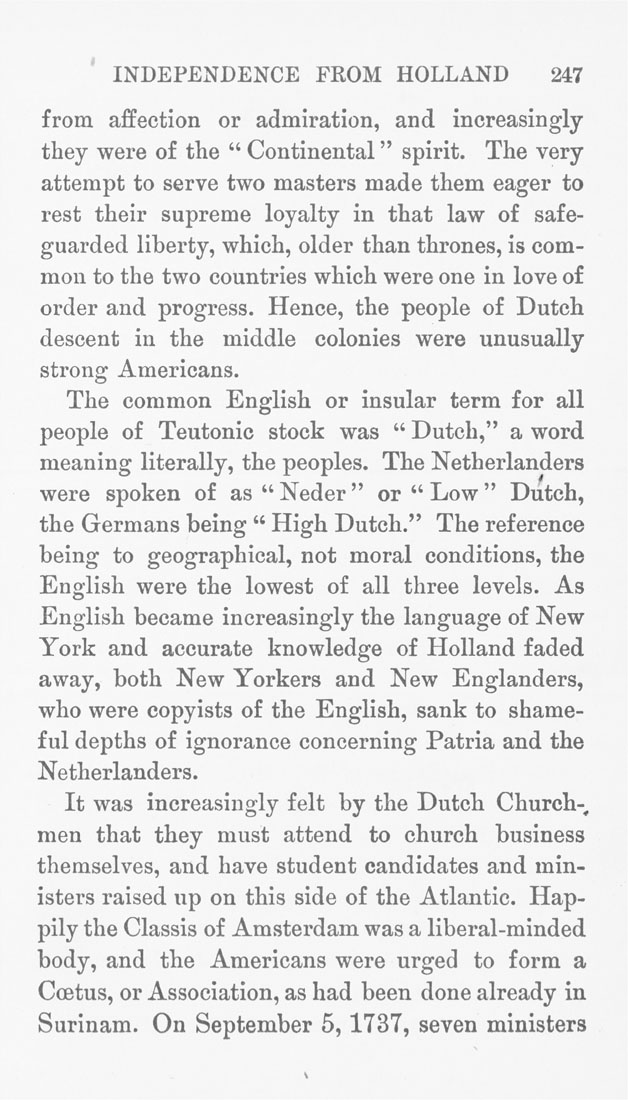INDEPENDENCE FROM HOLLAND 247
from affection or admiration, and increasingly
they were of the " Continental" spirit. The very
attempt to serve two masters made them eager to
rest their supreme loyalty in that law of safe¬
guarded liberty, which, older than thrones, is com¬
mon to the two countries which were one in love of
order and progress. Hence, the people of Dutch
descent in the middle colonies were unusually
strong Americans.
The common English or insular term for all
people of Teutonic stock was " Dutch," a word
meaning literally, the peoples. The Netherlanders
were spoken of as " Neder" or " Low " Dutch,
the Germans being " High Dutch." The reference
being to geographical, not moral conditions, the
English were the lowest of all three levels. As
English became increasingly the language of New
York and accurate knowledge of Holland faded
away, both New Yorkers and New Englanders,
who were copyists of the English, sank to shame¬
ful depths of ignorance concerning Patria and the
Netherlanders.
It was increasingly felt by the Dutch Church-^
men that they must attend to church business
themselves, and have student candidates and min¬
isters raised up on this side of the Atlantic. Hap¬
pily the Classis of Amsterdam was a liberal-minded
body, and the Americans were urged to form a
Coetus, or Association, as had been done already in
Surinam. On September 5,1737, seven ministers
|








